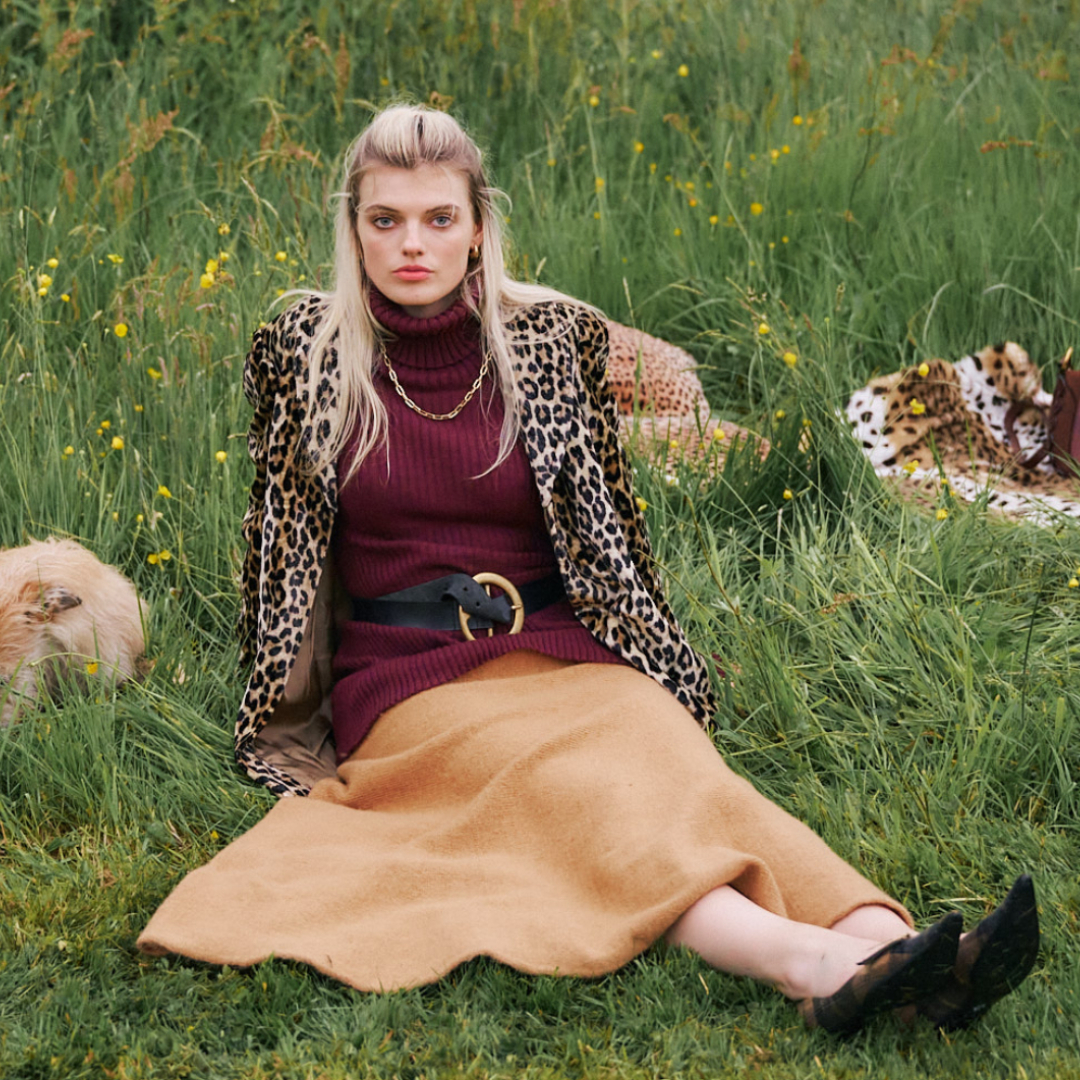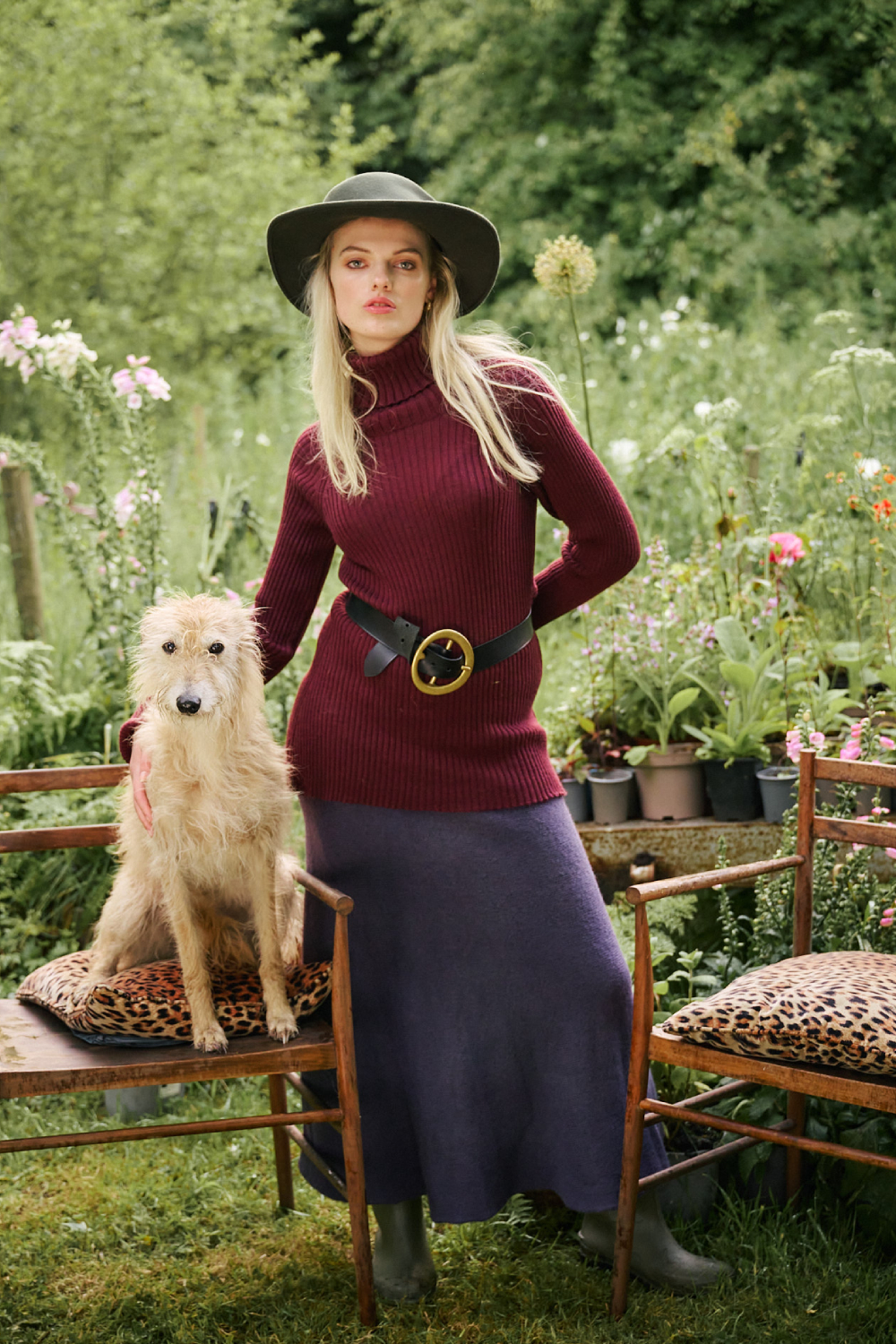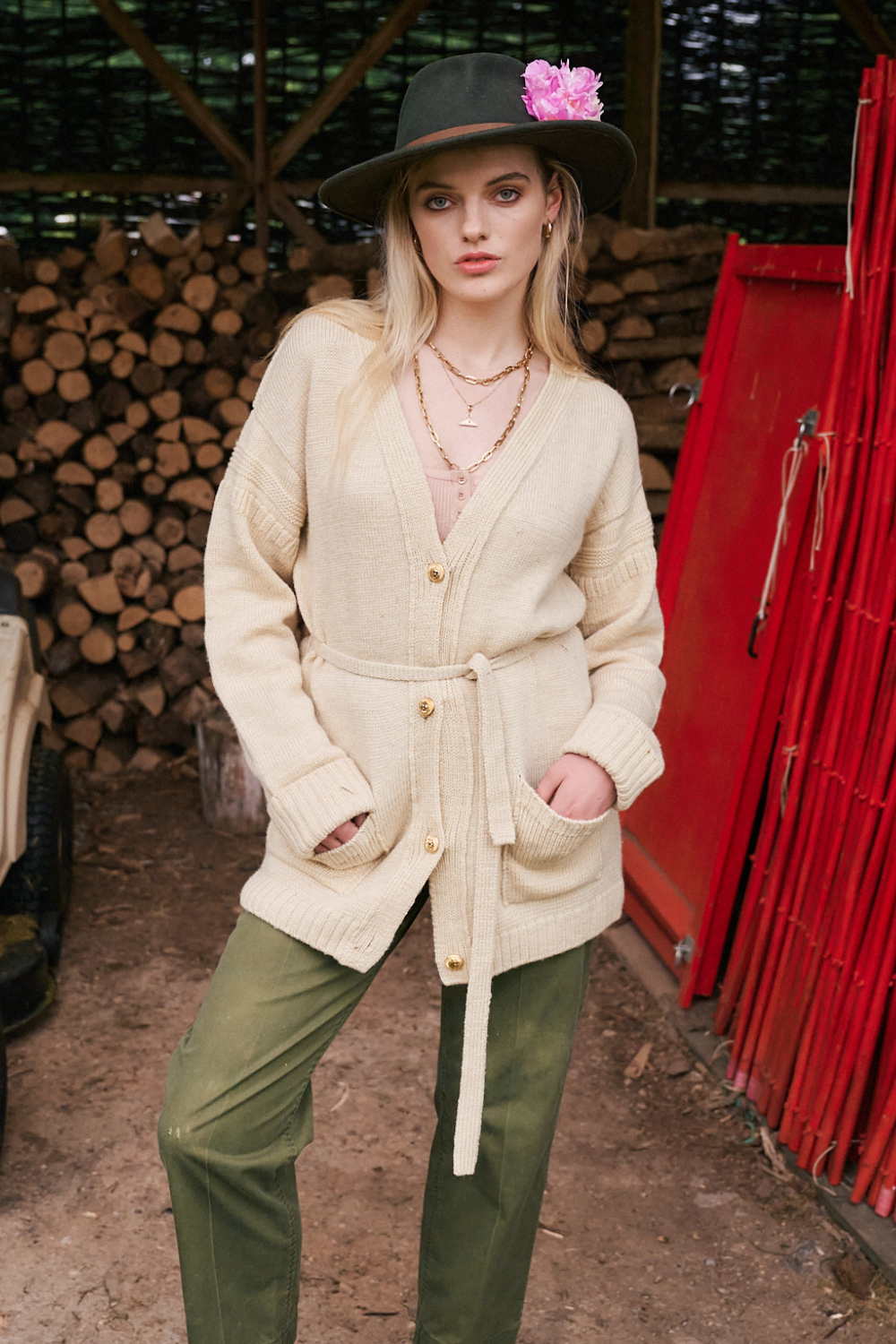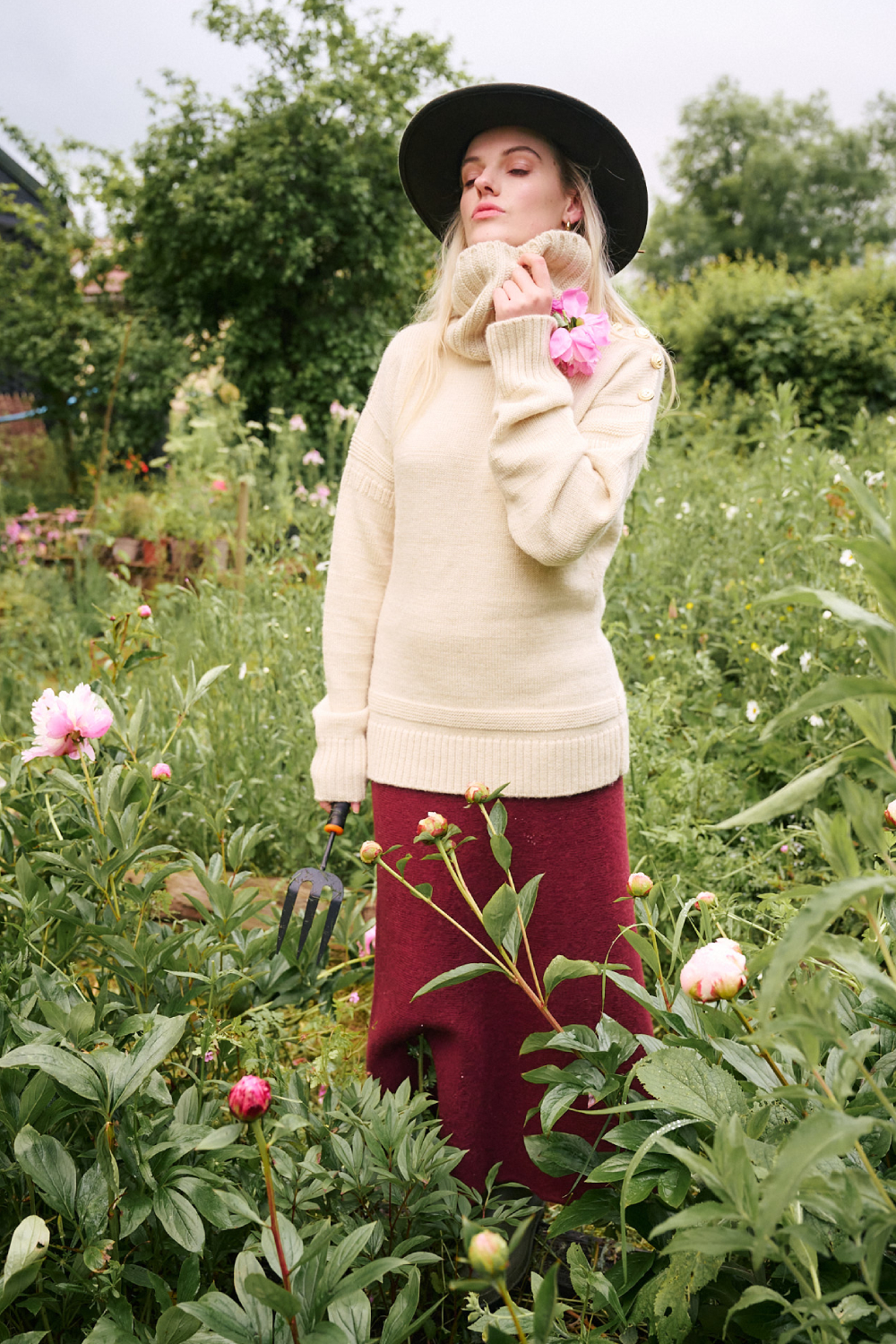
Bay Garnett and Herd are a match made in heaven. Let us explain why — Garnett is a former fashion editor turned author, stylist and sustainability advocate. A long-time champion of second-hand, often using thrifted pieces in her editorials, she has been the fashion advisor for Oxfam since 2017, styling the charity’s London Fashion Week shows and curating various pop-ups.
Herd is a sustainable knitwear brand founded in 2020 by Ruth Alice Rands. Activist, entrepreneur and knitter, Rands was inspired to start Herd after visiting the USA and seeing the success of natural fibre brands in California. Recognising a significant gap in the UK market, where much of the wool industry had been offshored, throughout her research she discovered the Bluefaced Leicester breed in the North of England, a sheep that has an exceptionally fine lustre fleece — superior even to merino.
“We came to work together as I loved what Ruth was doing and the way that she did it with such authenticity and diligence,” Garnett explains to Marie Claire. “So I approached her and suggested we do a collection together. She was up for it, and it's been a wonderful experience from start to finish.”

The collection, which launched last week, is made up of five distinct knitwear pieces. Inspired by Garnett’s long-time love of the 1970s, each item is named after a style icon of the period. “Jackie Kennedy walking in central park with great pants and a skinny rib, Jane Birkin picture perfect in blue denim and a cotton safari, Anita Pallenberg in a big knit and belt. That's what I wanted to create here — that laid back, stylish, coolness that all these women radiate.”
While rock n’ roll and sustainable wool don’t seem like immediate bedfellows, it’s hard to deny the attitude these pieces exude. Chunky roll neck sweaters with flared hemlines, front-laced peasant tops and waist-tied cardigans all scream out to be paired with bell bottoms and lashings of dangling jewellery. While the vision is aided hugely by Garnett’s photography — she shot and styled the campaign on Kitty Grayson’s flower farm in Somerset, giving major Woodstock energy — it is completed by the complimentary leather accessories, a first for the Herd brand.
The Stevie bag and belt leave no question as to who they are named after, and the designs are inspired by vintage pieces thrifted by Garnett. Made from 100% British Pasture Leather, Herd founder Rands tells Marie Claire: “Leather is a natural extension of the wool story, as for me it all starts with the material.” She explains: “I couldn’t have been happier to discover a supplier with such aligned values [to Herd] in British Pasture Leather. The hides are sourced from regenerative farms, vegetable tanned and constructed in a boutique leather studio in Lincolnshire.”

The limited collection uses only plant-based dyes — a notoriously difficult process. Most modern garments are produced with synthetic dyes, made from harmful chemicals and carcinogenic components (such as coal and petroleum) that can be absorbed into the skin or body. However, through Herd, Rand has built a hyper-local supply chain which uses completely natural fibres and processing methods. She recounts: “Early on in the brand’s development I consulted with expert plant dyers with the challenge of how to scale up the process, as I knew it would be a challenge. It is practised on a small scale in an artisan context, but there were no commercial dyeing houses offering this option when I started.”
She continues: “I needed advice on which plants and roots to use to achieve the best colour intensity and fastness. I then found an industrial partner who was interested in experimenting, and immediately we had favourable results with pinks and khaki greens.” Rands notes that while she has now cracked the methodology, the process doesn’t always yield similar results to what people have come to expect from mass-produced, synthetically dyed items. “Even when using the exact same recipe, the results can vary. Each dye can produce a range of colours, so you know that the results will be on the same spectrum, but there’s no guarantee of the exact shade.” However, she believes this is what adds to the brand’s appeal. “Fortunately, our customers understand and embrace this beautiful, unique aspect of Herd. Each piece is the result of that particular dye on that day, and we may not be able to repeat it again.”

Thanks to people like Garnett, who has been pushing sustainable and second-hand fashion throughout her 20-year-career, attitudes are shifting. Oxfam’s London Fashion Week show in September, styled by Garnett and supported by Vinted, meant every outfit was available to buy on the app afterwards. The rise in popularity of resale platforms has driven the conversation forwards, but what about clothes being manufactured today? “I think people have a misconception that clothes produced more sustainably are less sexy and less cool, or that they are a style compromise,” says Garnett. “Quite the opposite! Sustainably made clothes are way sexier — not just in terms of fabric and process, but of course ethos.”
That being said, what’s her favourite piece from the collection? “That’s hard! The Jackie roll neck and the black Stevie bag,” answers Garnett. And for Rand? “I adore the extra-long sleeves on the ribbed pieces and am wearing the Jane Safari with everything, with the Black Stevie Belt over it.”
Herd’s wool is sourced “from soil to skin” within a 150 mile radius of the sheep farms. The brand’s ethos is built upon working with local craftspeople, strengthening ecosystems and minimising wasteful transportation. The partnership with Garnett proves that you can do all of that, while still looking good.
Bay Garnett x Herd is available to buy now. Prices range from £185 to £945.







